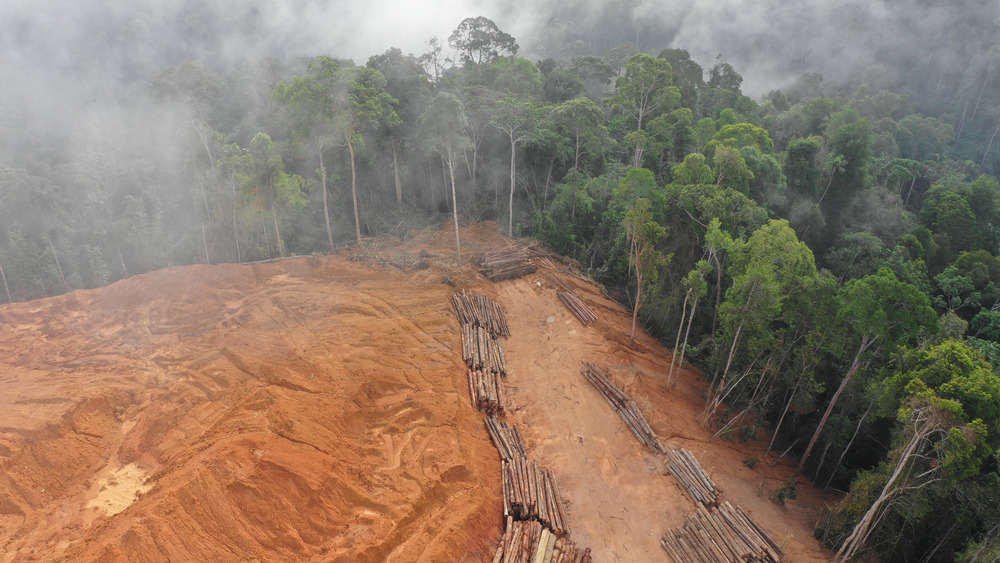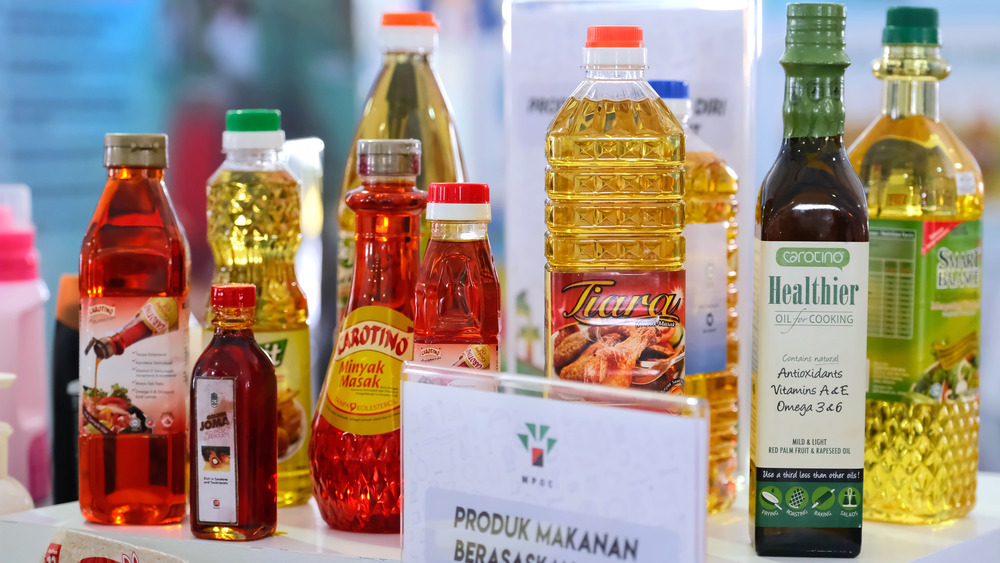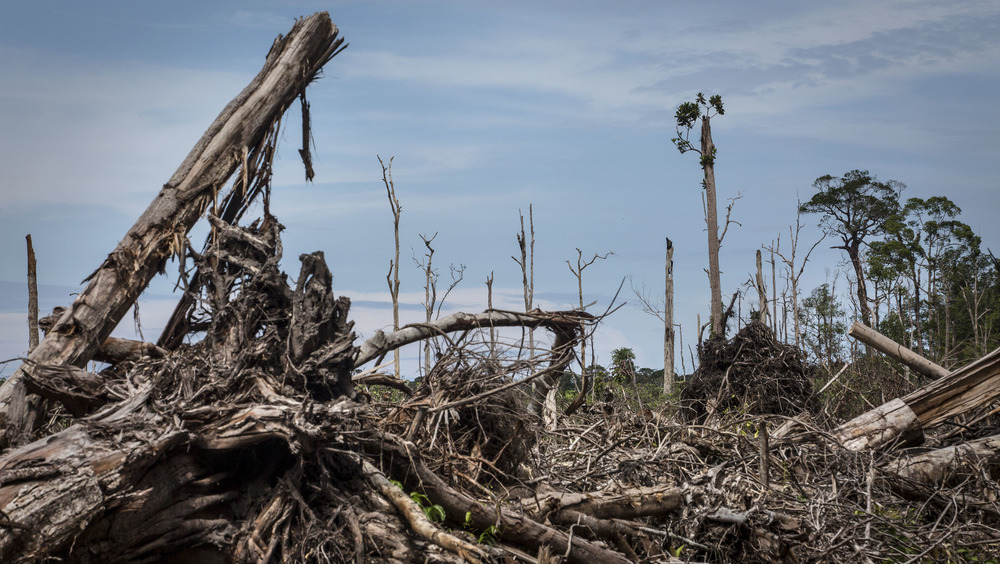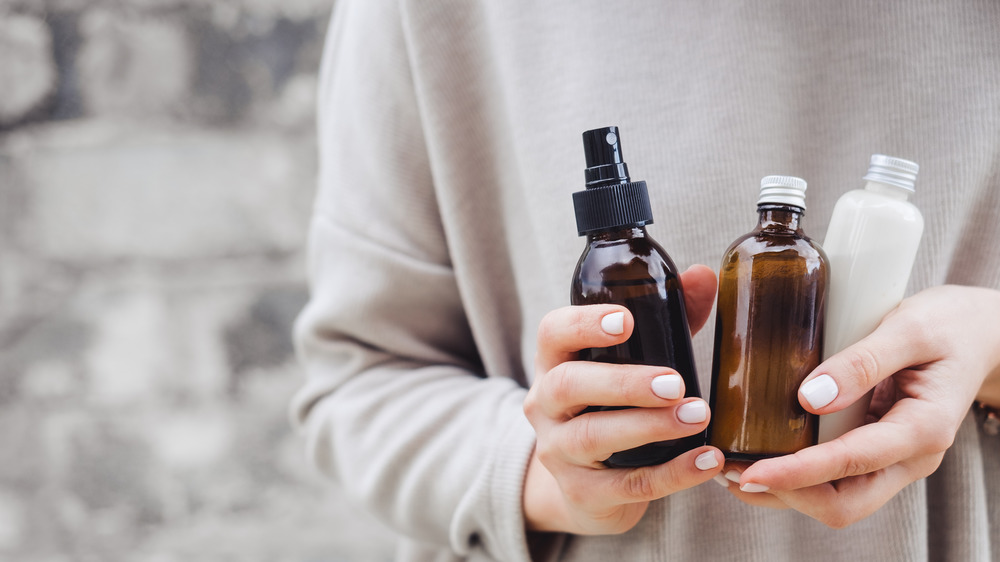The Messed Up Truth About The Palm Oil Industry
The story of palm oil is a trifold tale. It's about the dangers of pushing too fast, too soon without taking the time to foresee potentially injurious outcomes. It's about the dangers of growing too dependent on a single substance that forms the foundation of numerous aspects of our lives, much like fossil fuels. And, it's about the difficulty in backtracking from over-dependence, especially when entire nations' economies (particularly Malaysia and Indonesia's combined 300 million people) are at risk, as well as the daily comfort of 3 billion individuals worldwide, per The Guardian.
Substances like plastic can be destructive to Earth's life cycles, no matter their convenience to civilization. Procedures like fracking contribute to climate change. The seemingly benign coffee bean industry can create as many economic injustices in developing countries as it does robust brews (hence the whole "fair trade" label). Even simple, non-mechanical appropriation of materials can produce horrific human rights violations, such as child workers in Madagascar forced to mine for mica used in makeup products (see Refinery29's YouTube documentary if you're curious). And palm oil? It's all of these problems all together. The difference? As Neil Blomquist, managing director of Colorado-based Natural Habitats, says, "... The western part of world is a small share of palm oil consumption, and the rest of the world doesn't give a s***."
So what is the truth behind the palm oil industry? And furthermore, the age-old problem: Would knowledge change people's decisions about what they buy and consume?
A miracle cure for trans fats gone horribly wrong
The story of palm oil goes back to the 1960s, when it was discovered that saturated fat contributes to heart disease. Margarine was an obvious substitute, and viewed as a healthy alternative. It wound up producing, chemically, what we now know as trans fats, however, which are even unhealthier than saturated fats. The type of substance that contains trans fats — partially hydrogenated oils — itself needed a substitute. Enter the 1990s' miracle cure: palm oil, which was seen as a one-shot, catch-all solution. Just substitute palm oil (from the fruit) or palm kernel oil (from the seeds) for partially hydrogenated oil, and presto: We had an even healthier, even cheaper, magical material that's easy to grow, produce, and has all the desirable properties of trans fats, like maintaining temperature (which is why palm oil is used in ice cream).
And now? It's contained in over 200 common household items, per Palm Oil Investigations. A foaming agent in shampoo, an alternative to animal tallow in makeup, a medium for frying food, a cheap raw material for biofuels, an adhesive for particle boards, a composite component of automobiles. Pizza, popcorn, baked goods: If it once contained trans fats, likely it now contains palm oil. It accounts for 10 percent of global cropland. Each human on Earth consumes an average of 8kg of it per year. Malaysia and Indonesia produce 85 percent of it.
And the true cost? Destruction, abuse, and disease.
A substance of convenience, abuse, and suffering
If those accusations sound hyperbolic, sadly, they're not. Women in palm oil fields, as the Associated Press reports, have the most hazardous jobs, such as slogging through chemical run-off for hours while carrying loads so heavy that their wombs actually collapse. They often labor without pay to help their husbands meet quotas. They have minimal rights, no healthcare, and are so swallowed by physical and sexual abuse that they only feel safe speaking out in secret meetings with no men present.
As CNN reports, Amnesty International exposed numerous labor abuses by Singapore-based Wilmar (WLMIF), a palm oil producer who supplies brands such as Nestlé, Kellogg's, and Procter & Gamble. Per Mongabay, another palm oil giant, Korindo, has been accused of illegally burning a space the size of Chicago in the Sumatran rainforest in Indonesia, to make space for more oil palms. Mongabay also talks about the destruction of biodiversity. The deforestation of the Amazon in Brazil is well known at this point, but now an equal danger is faced by the world's other large rainforest in the island of Sumatra. Rainforests account for 50 percent of all the Earth's richness of species, and the Amazon alone, as Greenpeace tells us, lost the equivalent of 1.8 million football fields of trees from just from 2018-2019.
And the health risks of palm oil? As the World Health Organization reports, there are links to heart failure, heart disease, and high cholesterol. Health benefits? Zero.
Deliberately misleading labels to confuse the public
Despite its ubiquity, there's extreme difficulty locating palm oil on labels. We know that it exists in 50 percent of all household food items, as Ethical Consumer says, and 70 percent of all health and beauty products. Labels are often intentionally vague and misleading, saying things like "vegetable oil" or "cocoa butter substitute." Or, labels will say "something-something derivative," to avoid stating outright that palm oil exists in the product. Palm oil has been developed into over 500 different substances at this point, so we have to look to building block terms like "guar," "glyc," and "stear."
Now that we know the dark truth of the palm oil industry, what can we do? Some products do currently have "palm oil free" labels. And through a bit of study, we can become informed consumers. But stopping or even stymieing the bullish growth of palm oil markets abroad, especially in developing countries, will take a bit of work, because the economies of places like India have grown utterly dependent on the stuff (especially its junk food and fast food). The International Monetary Fund (IMF) has even encouraged Indonesia to increase production.
On the plus side, people are growing incrementally more aware, and the international community is taking note. In 2019, under pressure from the European Palm Oil Association, Indonesia placed a three-year moratorium on the development of new palm oil factories. It's not a final answer, but at least it's a step.



